“Mary vouchsafes to appear under various aspects to satisfy the tastes and cravings of each soul. At La Salette, where She descended in a distressful spot, all in tears, She revealed Herself no doubt to certain persons, more especially to the souls in love with sorrow, the mystical souls that delight in reviving the anguish of the Passion and following the Mother in Her heart-breaking way to the Cross. She would thus seem less attractive to the vulgar who do not love woe or weeping; it may be added that they still less love reproof and threats. The Virgin of La Salette could not become popular, by reason of Her aspect and address, while She of Lourdes, who appeared smiling, and prophesied no catastrophes, was easy of access to the hopes and gladness of the crowd.
“She was, in short, in that sanctuary, the Virgin of the world at large, not the Virgin of mystics and artists, the Virgin of the few, as at La Salette.
“What a mystery is this direct intervention of the Christ’s Mother on earth!” thought Durtal.
And he went on: “It is clear, on reflection, that the churches founded by Her may be classed in two very distinct groups.
“One group where She has revealed Herself to certain persons, where waters spring and bodily ills are healed: La Salette and Lourdes.
“The other, where She has never been gazed on by human beings, or where Her appearance occurred in immemorial times, in forgotten centuries, the dead ages. In those chapels prayer alone is in force, and Mary answers it without the help of any waters. Indeed, She effects more moral than physical cures…
“Wherefore this difference? None can understand, and probably none will ever know. At most may we suppose that in compassion for the everlasting craving of our hapless souls wearied with prayer without sight, She would fain confirm our faith and help to gather in the flock by showing Herself.
“In all this obscurity,” Durtal went on, “is it at least possible to discern some dim landmarks, some vague law?
“As we gaze into the darkness, two spots of light appear,” he replied to himself.
“In the first place, this: She appears to none but the poor and humble; She addresses the simple souls who have in a way handed down the primitive occupation, the biblical function of the Patriarchs; She unveils herself to the children of the soil, to the shepherds, to girls as they watch the flock. Both at La Salette and at Lourdes She chose little pastors for Her confidants, and this is intelligible, since, by acting thus, she confirms the known will of Her Son; the first to behold the infant Jesus in the manger at Bethlehem were in fact shepherds, and it was from among men of the lowest class that Christ chose His apostles. (Novel published in 1898 before Fatima. Note: link to the Ultimate Guide to Marian Apparitions).
“And is not the water that serves as a medium of cure prefigured in the Sacred Books—in the Old Testament by the River Jordan, which cleansed Naaman of his leprosy; and in the New by the probationary pool stirred by an angel?
“Another law seems no less probable. The Virgin is, as far as possible, considerate of the temperament and individual character of the persons She appears to. She places Herself on the level of their intellect, is incarnate in the only material form that they can conceive of. She assumes the simple aspect these poor creatures love, accepting the blue and white robes, the crown and wreaths of roses, the trinkets and garlands and frippery of a first Communion, the ugliest garb. (Basilica of the National Shrine of the Immaculate Conception in Washington DC has numerous chapels on its lower level honoring Marian Apparitions, displaying the wonderful garb worn by our Beautiful Holy Mother).
“There is not indeed a single case where the shepherd maids who saw Her described Her otherwise than as a ‘beautiful lady’ with the features of the Virgin of a village altar, a Madonna of the Saint-Sulpice shops, a street-corner Queen.
“These two rules are more or less universal,” said Durtal to himself. “As to the Son, it would seem that He never now will reveal Himself in human form to the masses. Since His appearance to the Blessed Mary Margaret, whom He employed as a mouthpiece to address the people, He has been silent. He keeps in the background, giving precedence to His Mother. (Once again keep in mind the novel’s pre-twentieth century time, before the life of St Faustina and Our Lord’s Divine Mercy visitations).
“He, it is true, reserves for Himself a dwelling in the secret places, the hidden regions, the strongholds of the soul, as Saint Theresa calls them; but His presence is unseen and His words spoken within us, and generally not apprehended by means of the senses.”
Durtal ceased speaking, confessing to himself how inane were these reflections, how powerless the human reason to investigate the inconceivable purposes of the Almighty; and again, his thoughts turned to that journey to Dauphiné which haunted his memory.
“Ah! but the chain of the High Alps and the peaks of La Salette,” said he to himself; “that huge white hotel, that church colored with dirty yellow lime-wash, vaguely Byzantine and vaguely Romanesque in its architecture, and that little cell with the plaster Christ nailed to a flat black wooden Cross—that tiny Sanctuary plainly white-washed, and so small that one could step across it in any direction—they were pregnant with her presence, all the same!”
“Surely She revisited that spot, in spite of Her apparent desertion, to comfort all comers; She seemed so close at hand, so attentive and so grieving, in the evening as one sat alone by the light of a candle, that the soul seemed to burst open like a pod shedding the fruit of sin, the seeds of evil deeds; and repentance, that had been so tardily evolved, and sometimes so indefinite, became so suddenly despotic and unmistakable that the penitent dropped on his knees by the bed, and buried his head sobbing in the sheets. Ah, those were evenings of mortal dullness and yet sweetly sad! The soul was rent, its very fibers laid bare, but was not the Virgin at hand, so pitiful, so motherly, that after, the worst was over She took the bleeding soul in her arms and rocked it to sleep like a sick child.
“Then, during the day, the church afforded a refuge from the frenzy of giddiness that came over one; the eye, bewildered by the precipices on every side, distracted by the sight of the clouds that suddenly gathered below and steamed off in white fleece from the sides of the rocks, found rest under the shelter of those walls.
“And finally, to make up for the horrors of the scene and of the statues, to mitigate the grotesqueness of the inn-servants, who had beards like sappers and clothes like little boys—the caps, and Holland blouses with belts, and shiny black breeches, like cast iron, of the children at the Saint Nicolas school in Paris—extraordinary characters, souls of divine simplicity expanded there.”
And Durtal recollected the admirable scene he had watched there one morning.
He was sitting on the little plateau, in the icy shade of the church, gazing before him at the graveyard and the motionless swell of mountain tops. Far away, in the very sky, a string of beads moved on, one by one, on the ribbon of path that edged the precipice. And by degrees these specks, at first merely dark, assumed the bright hues of dresses, assumed the form of colored bells surmounted by white knobs, and at last took shape as a line of peasant women wearing white caps.
And still in single file they came down the square.
After crossing themselves as they passed the cemetery, they went each to drink a cup of water at the spring and then turned round; and Durtal, who was watching them, saw this:
At their head walked an old woman of at least a hundred, very tall and still upright, her head covered by a sort of hood from which her stiff, wavy hair escaped in tangled grey locks like iron wire. Her face was shriveled like the peel of an onion, and so thin that, looking at her in profile, daylight could be seen through her skin.
She knelt down at the foot of the first statue, and behind her, her companions, girls of about eighteen for the most part, clasped their hands and shut their eyes; and slowly a change came over them.
Under the breath of prayer, the soul, buried under the ashes of worldly cares, flamed up, and the air that fanned it made it glow like an inward fire, lighting up the thick cheeks, the stolid, heavy features. It smoothed out the crackled surface of wrinkles, softened in the younger women the vulgarity of chapped red lips, gave color to the dull brown flesh, overflowed in the smile on lips half parted in silent prayer, in timid kisses offered with simple good faith, and returned no doubt in an ineffable thrill by the Holy Child they had cherished from His birth, who, since the martyrdom of Calvary, had grown to be the Spouse of Sorrows.
They felt, perhaps, something of the raptures of the Blessed Virgin who is Mother and Wife and at the same time the beatified Handmaid of God.
And in the silence a voice as from the remotest ages arose, and the ancestress said, “Pater Noster,” and they all repeated the prayer, and then dragged themselves on their knees up the steps of the way of crosses, where the fourteen upright posts, each with its cast metal bas-relief, bordered a serpentine path, dividing the statues from the groups. Thus they went forward, stopping long enough to recite an Ave on each step they climbed, and then, helping themselves with their hands, they mounted to the next. And when the Rosary was ended the old woman rose, and they solemnly followed her into the church, where they all prayed a long time, prostrate before the altar; and the grandmother stood up, gave each holy water at the door, led her flock to the spring where they all drank again, and then they went away, without speaking a word, one after another up the narrow path, ending as black specks just as they had come, and vanishing on the horizon.
“Those women have been two days and two nights crossing the mountains,” said a priest, coming up to Durtal. “They started from the depths of Savoy, and have travelled almost without rest to spend a few minutes here; they will sleep tonight in a cow-house or a cave, as chance may direct, and tomorrow by daybreak they will start again on their weariful way.”
Durtal was overpowered by the radiant splendor of such faith.
J.K. Huysmans novel “The Cathedral”
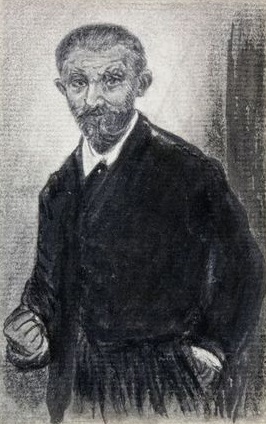


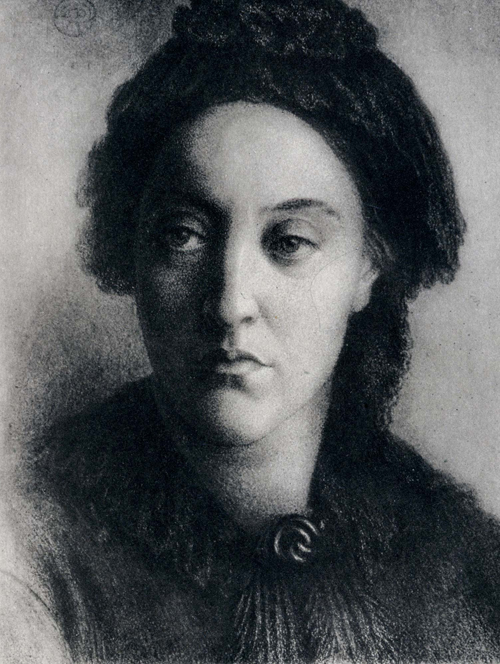
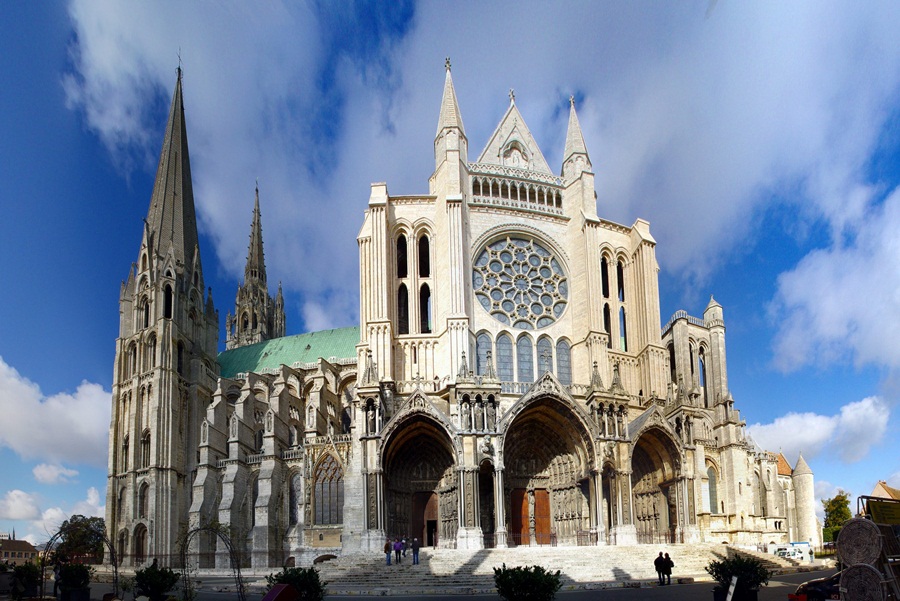
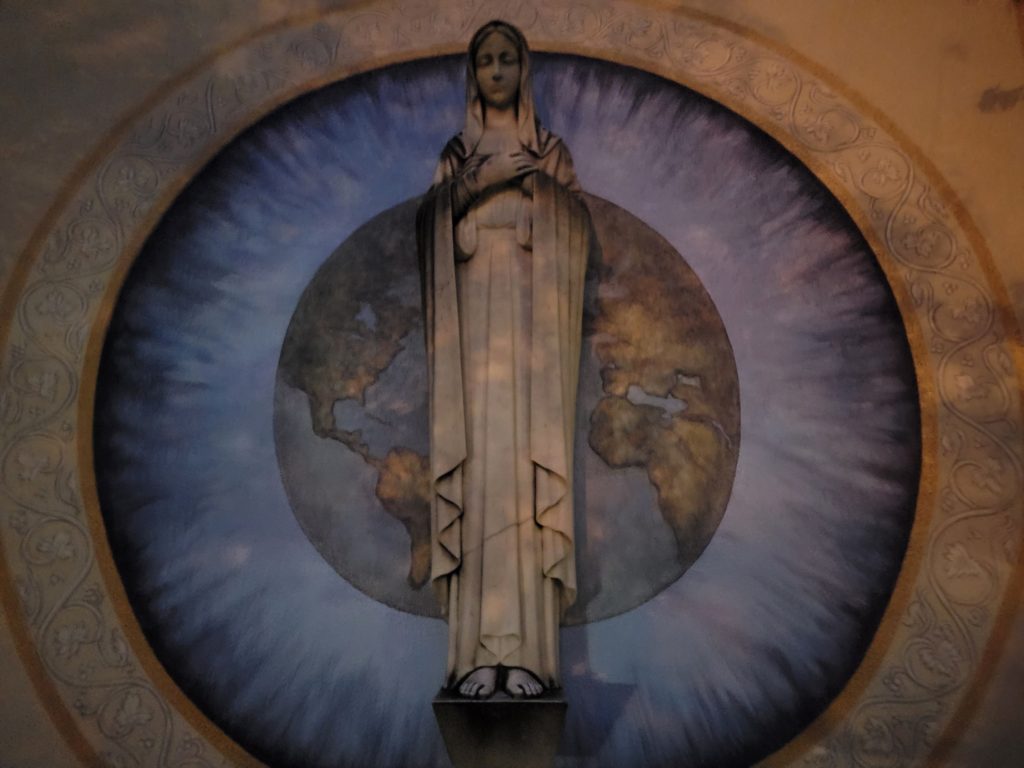
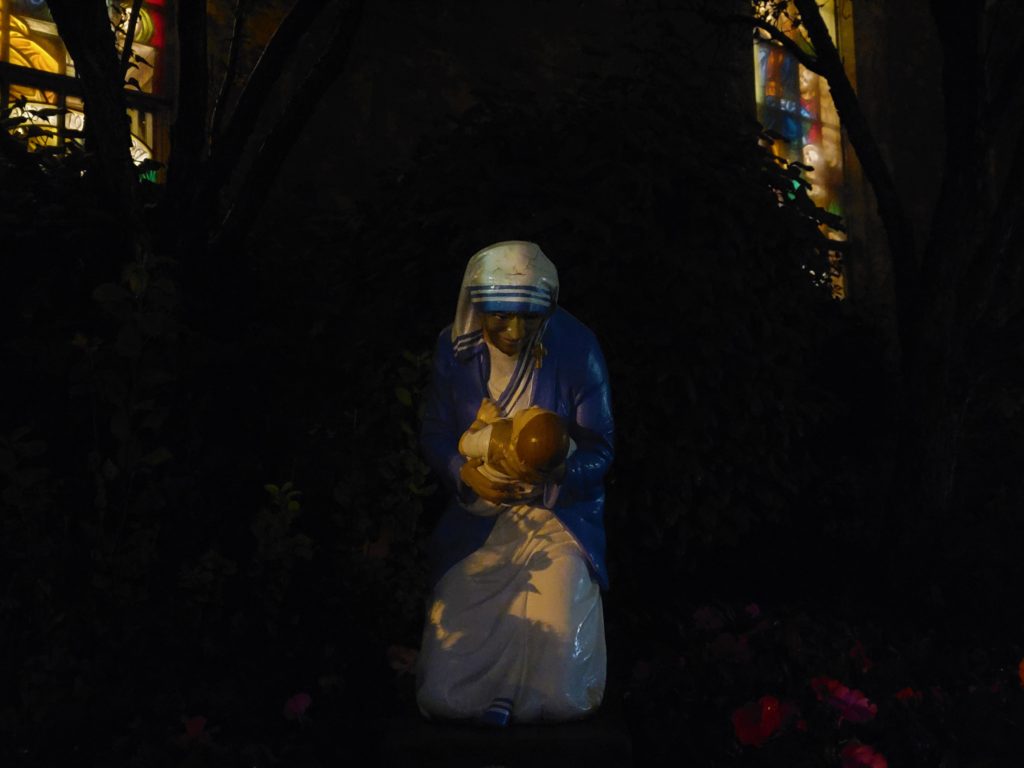

Recent Comments